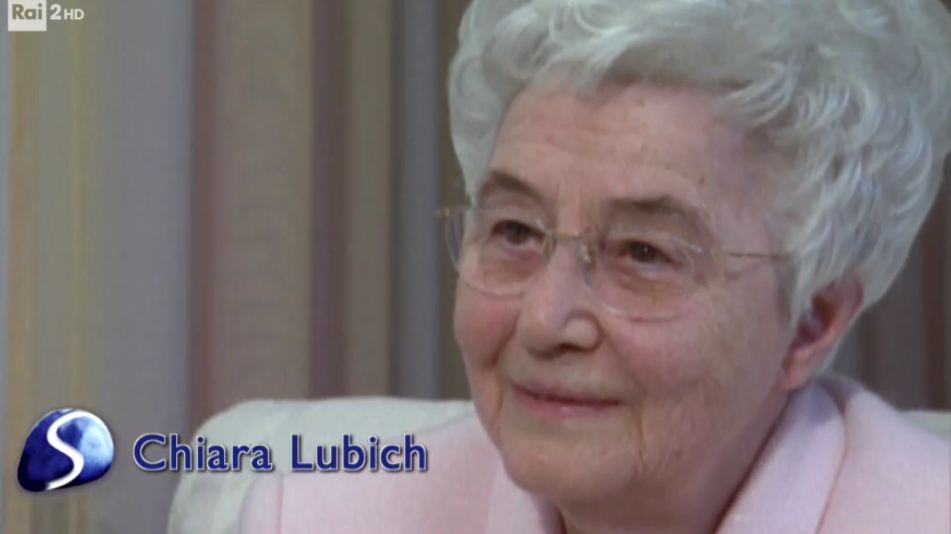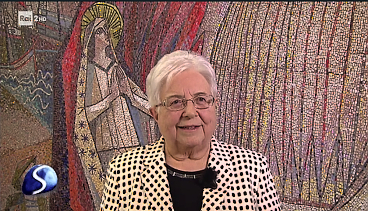Aug 10, 2018 | Non categorizzato
“Mary Most Holy is the Seat of Wisdom because she welcomed Jesus into her womb and he is the Incarnate Wisdom. With her fiat at the Annunciation, Mary consented to the divine will and Wisdom made its dwelling in her womb, making her Wisdom’s most exemplary disciples. The Virgin was blessed, not so much for having suckled the Son of God, but for having nourished herself on the wholesome milk of God’s Word.” (Pope Saint John Paul II, Angelus, September 4, 1983) In order properly to understand this sacred hymn of praise, we need to bear in mind that the Blessed Virgin Mary is speaking on the basis of her own experience, in which she was enlightened and instructed by the Holy Spirit. No one can correctly understand God or his word, unless he has received such understanding immediately from the Holy Spirit. But no one can receive it from the Holy Spirit without experiencing, proving and feeling it. In such experience the Holy Spirit instructs us as in his own school, outside of which nothing is learned except empty words and prattle. When the Holy Virgin experienced what great things God was working in her despite her insignificance, lowliness, poverty, inferiority, the Holy Spirit taught her this deep insight and wisdom, that God is kind of Lord who does nothing but exalt those of low degree and put down the mighty from their thrones…” (Martin Luther, Commentary on the Magnificat of Mary, Introduction). “The Madonna is Seat of Wisdom not because she had spoken, not because she was a Doctor of the Church, not because she was seated on the cathedra, not because she founded a university: she’s Seat of Wisdom because she gave Christ to the world, who is the Incarnate Wisdom. She accomplished a fact. The same for us: we’ll have wisdom if we live in such a way that Jesus will be in us, among us, in fact.” (Chiara Lubich, Una via nuova, Citta Nuova, 2002) “Mary doesn’t live of herself only, but from far more profound depths: the Holy Spirit in her. From him emanates not only her Son, the content and fruit of her being; from him emanates the fulfillment and the form of his very life.” (Klaus Hemmerle, Brücken zum credo)
Aug 8, 2018 | Non categorizzato
Instituted by the United Nations in 1994, the Day memorialises the rights of all people to live according to the customs and traditions of their origins, with particular focus on the 370 million members of indigenous people living in 90 countries of the world and representing 15% of the world population while remaining 15% of the world’s poor. The UN document is intended to “incarnate the global consensus on the rights of indigenous peoples, and to establish a framework of minimal norms for their survival, dignity and well-being.” In the last ten years – the UN reports – the Declaration has had several successes at different international level, national and regional levels, but there continues to be a gap between the formal recognition of the indigenous peoples and that actualization of politics on the ground.

Aug 3, 2018 | Non categorizzato

Maria Voce
 The message that Chiara left us is that of being open to everyone, not looking at anyone as if they were different from you, but seeing everyone as your brother or sister. This “everyone” means people from your own country and those from other countries, Christians and non-Christians, believers and non-believers, those who understand and accept what I am saying and the person who contradicts me, because even someone who contradicts me is my brother or sister. This is what Chiara taught us and what she did herself first of all, having a heart that was able to welcome each person as if they were the only person in the world, whether they were a head of State, a child or a relative; a Church leader or a leader of another religion. Chiara had the same love for all. I believe this is the most important message for today when there is a growth in tension and violence, selfishness and mutual indifference. We can build a world guided by the Gospel, where all people are brothers and sisters and truly live as one family.
The message that Chiara left us is that of being open to everyone, not looking at anyone as if they were different from you, but seeing everyone as your brother or sister. This “everyone” means people from your own country and those from other countries, Christians and non-Christians, believers and non-believers, those who understand and accept what I am saying and the person who contradicts me, because even someone who contradicts me is my brother or sister. This is what Chiara taught us and what she did herself first of all, having a heart that was able to welcome each person as if they were the only person in the world, whether they were a head of State, a child or a relative; a Church leader or a leader of another religion. Chiara had the same love for all. I believe this is the most important message for today when there is a growth in tension and violence, selfishness and mutual indifference. We can build a world guided by the Gospel, where all people are brothers and sisters and truly live as one family.
Aug 1, 2018 | Non categorizzato
The littlest one A neighbour, who was in a bit of pain because her son wasn’t profiting much from his schooling, couldn’t find a way to help him with his schoolwork. She left for work every morning at 5:30 and returned in the evening. So, I suggested that she send him over to me and he could study with my son. It wasn’t easy, because I also had to help my older son and take care of the smaller one, who had just turned one. But I was glad to be of help to someone. M. M. (Venezuela) An arms factory Finally I had found a job at factory equipped with a sophisticated security system. I couldn’t believe it and thought our problems were over. After a while I became aware of a secret that had been kept from me: the factory built weapons. They asked me if I had a problem with that, and I nonchalantly answered no. It wasn’t up to me to solve that problem, plus I would have been out on the street again. Talking it over with my wife and some friends, I realized what choice I needed to make. On my way home, unemployed again, I couldn’t stop crying, but there was an unusual joy deep inide my soul. I had put my Christian identity before everything. I would never have imagined that just a short time later I would be offered another very gratifying job and, most importantly, in line with my conscience. D. R. (Italy) A different mood Our son had returned from the kind of vacation we parents just couldn’t approve of. We decided to talk to him after supper, firmly decided to tell him that either he changed his lifestyle, or he’d have to move out of the house. All day, I kept asking myself if that would really be good for him. I also spoke about it with some of my girlfriends and my doubts increased. Perhaps, I thought, we have to be able to wait and put more love into our relationship as Jesus tells us to do. After talking about it with my husband, we had a change of mood, no longer imposing our point of view, but having a more listening mood in order to hear him. We sat together for a long time and, even though he didn’t share our ideas he let us share his struggles. We thanked God for having guided us along. C. W. (Austria) A suspicious character We don’t know anyone in the town we moved to for work. In fact, my colleagues tell me not to trust anyone there, because the people there are not recommendable. My husband, with his outgoing personality, immediately began to chat with several people, especially one man in particular whom he met every day at the magazine stand. My colleagues warned me again, telling me that man, in particular, had serious problems with the law. A few days later our daughter wasn’t feeling well and her condition worsened. I felt at a loss. Then I remembered that my husband had received a local map from the man he had met at the magazine stand. It showed the location of all the local services, including hospitals, doctors and pharmacies. Suddenly, it all became easy, thanks to the map from that suspicious character. It was a powerful lesson for me: Love of neighbour must come before any and all judgements.” L. S. (Italy)
Jul 31, 2018 | Non categorizzato
According to tradition, on the night of July 1216, St. Francis asked God for forgiveness of the sins of the penitent pilgrims visiting the “Portiuncula.” On 2 August Pope Honorius III established the “Pardon of Assisi” in the Franciscan churches, an indulgence extended today to all the parish churches worldwide. On 1 August there will be the celebration of the “Opening of the Days of Indulgences” (from 12 noon of 1 August up to midnight of 2 August). It will be followed by the traditional Evening Prayer with a procession with torches. The youths of the 38th Franciscan March coming from all the regions of Italy and some foreign countries, shall cross the threshold of the “Portiuncula” after a journey on foot of more than a week, guided by the theme, “With a new name.” Lastly, the Basilica Square will be the location of five events/shows (Gloriosus Francisuc with Michele Placido, Concert of the Russian Symphonic Orchestra, On a journey with Mary, Pardon Concert of the Vatican Gendarmerie Band, and the ballet, The Two Paths).


